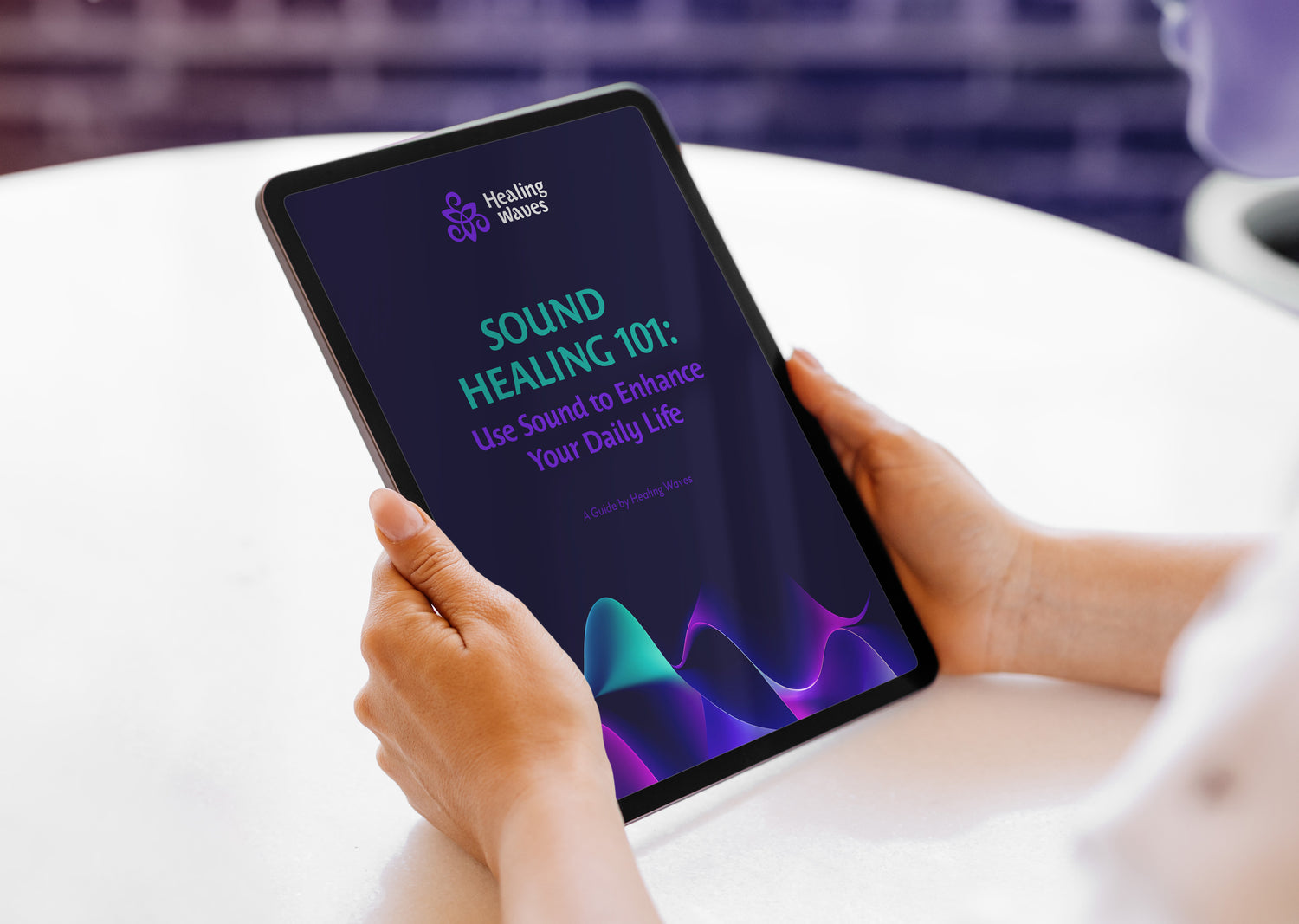Not getting enough deep sleep?
In this article, we will share with you why deep sleep is so important, and how you can get more of it.
What is Deep Sleep?
You’ve probably heard that adults need to sleep for about seven to eight hours every night for them to perform their duties and responsibilities properly. Quality of sleep should always be taken into account as well. While resting, the body goes through several stages of the sleep cycle. Deep sleep is one of these stages that help you feel refreshed in the morning. During deep sleep, the waves in the body and brain slow down dramatically. It is quite difficult to wake from a deep sleep.
According to National Sleep Foundation sleep is a whole lot more complicated, and it’s a much more active state than you might think. In fact, while you're getting your sleep, your brain goes through various patterns of activity. It’s a predictable cycle that includes two distinct parts – NREM, or Non-REM sleep, plus a REM or “Rapid Eye Movement” cycle.
Check out what happens in your body during each phase of sleep:
Stage One: Within minutes (sometimes even within seconds!) of nodding off, your brain produces what are called alpha and theta waves, and your eye movements slow down. This introduction to sleep is relatively brief, lasting up to seven minutes. Here, you are in light stage sleep, which means that you're somewhat alert and can be easily woken. It’s during this stage of sleep that people often indulge in brief “catnaps.”
Stage Two: During this stage, which is also fairly light, the brain produces sudden increases in brain wave frequency known as sleep spindles. Then brain waves slow down. If you were to schedule a “power nap” you’d want to wake up after this stage of sleep.
Stages Three & Four: This stage is the beginning of deep sleep, as the brain begins producing slower delta waves. You won't experience any eye movement or muscle activity. At this point, it becomes a little harder for you to be awakened, because your body becomes less responsive to outside stimuli. The brain produces even more delta waves and you move into an even deeper, more restorative stage of sleep next. It's most difficult to wake up during this stage. This is when the body repairs muscles and tissues, stimulates growth and development, boosts immune function, and builds up energy for the next day.
Rapid Eye Movement (REM) Sleep: You generally enter REM sleep about 90 minutes after initially falling asleep, and each REM stage can last up to an hour. An average adult has five to six REM cycles each night. During this final phase of sleep, your brain becomes more active. This is when most dreaming occurs, your eyes jerk quickly in different directions, heart rate and blood pressure increase, and breathing becomes fast, irregular, and shallow. REM sleep plays an important role in learning and memory function since this is when your brain consolidates and processes information from the day before so that it can be stored in your long-term memory.
It’s important to note that these phases last for different durations at various ages; an infant’s sleep cycle will look different than that of an adult or elderly individual. On an average night, you move through the stages in a sequential fashion. Most non-REM sleep occurs early in the night and the length of REM periods increases as the night goes on. That’s why there’s a good chance you’ll awaken from a dream in the morning—hopefully, a sweet one!
"Sleep has been provided by nature to do the body’s healing work, and it takes seven or eight hours for this process to happen. Commit to getting at least seven to eight hours of good quality sleep every night to keep your body and hormones in balance.”
Suzanne Somers
Why Is Deep Sleep Important?
The reason why deep sleep is so important is that it allows for restoration. Sleep is when essential bodily processes get to work. During deeper sleep, hormones are released and regulated, tissues are repaired, muscles are grown, and memory is consolidated. This is also when the immune system has time to restore itself, decreasing inflammation and increasing the body’s ability to protect itself.
Sleep deprivation can rob the brain of its opportunity to reorganize and recharge itself. Research shows that high sleep quality is essential for clearing the brain of toxic byproducts and restoring normal functioning.
Other Benefits of Deep Sleep
- Increases short-term and long-term memory and overall learning.
- Increases the growth and development of the body.
- Energy Restoration
- Cell Regeneration
- Increasing blood supply to muscles.
- Promoting growth and repair of tissues and bones.
- Strengthening the immune system.
How Much Deep Sleep Do I Need?
While a person needs all the stages of sleep, deep sleep is especially important for brain health and function. Deep sleep helps the brain create and store new memories and improves its ability to collect and recall information.
The amount of deep sleep a person needs depends on their age and activity level. In general, 7-9 hours of sleep provides ample time to experience the rejuvenating benefits of deep sleep.
Deep sleep can’t actually be controlled. As can be seen, the most important thing is to get enough sleep and you’ll be able to maintain the proper hours of deep sleep for your body to rest. After all, if you can’t actually control how much deep sleep you’re getting every night, there are ways to improve your time in a deep sleep
“I drink a ton of water a day and try to get as much sleep as possible. Sleep is the best way to restore your health. Never skip on sleep; it’s crazy important.”
Brittany Howard
Ways to Improve Your Time in Deep Sleep.
A well-planned sleep environment is essential to support a bedtime ritual. Healthy sleep habits, like sleeping and waking at the same time every day, also help establish a sleep routine and adjust your circadian rhythm to a healthy schedule. A good sleep ritual also ties into your sleep environment, as you can create a space that supports your mindfulness routine. Reading a book, taking a bath, and avoiding stimulating technologies and lights can help you wind down more quickly.
Find Your Ideal Room Temperature. Regardless of your temperature preferences, physiology and science both point to the ideal nighttime room temperature being around 67 degrees Fahrenheit (19.5 degrees Celsius). Your body temperature decreases to initiate sleep, so a cool room can give you a head start.
Workouts for the Daytime. Stay active during the day. Go for a run or just a casual walk around the block to avoid sitting for long periods. As little as thirty minutes of activity a day can set you up for a good night’s sleep.
Power Down Your Devices. We are glued to our smartphones and tablets throughout the day, from the moment that we wake up, up to the point when we get to bed. Unfortunately, the bright light that is coming from these devices actually stimulates the brain, which in turn can affect our sleep. If you want to be able to get more shut-eye at night, power down your devices at least an hour before bedtime so that you don’t expose yourself to blue light.
Listen to Deep Sleep Music. Deep Sleep Music is designed to change your brain waves, Into Delta waves (a deep sleep state) letting your mind and body rest, giving an opportunity for your body and mind to regenerate energy, sleep deep, and heal.
“By helping us keep the world in perspective, sleep gives us a chance to refocus on the essence of who we are. And in that place of connection, it is easier for the fears and concerns of the world to drop away.”
Ariana Huffington
Always remember, sleep is different for everyone, and what works for some may not work for you. Try experimenting with a few of these strategies, discover what works, and hold on to what’s best for you, your body, and your sleep.
Please keep me posted on whether these tips to increase deep sleep work for you by posting a comment below. Or if you have your own tips to increase deep sleep feel free to share them in the comments section.
Join our Community now, Facebook Community or Instagram Community
P.S- You Can Combine Yoga Equipment, Meditation Music or Meditation Tools to boost and to gain more from your Yoga and meditation practice.


